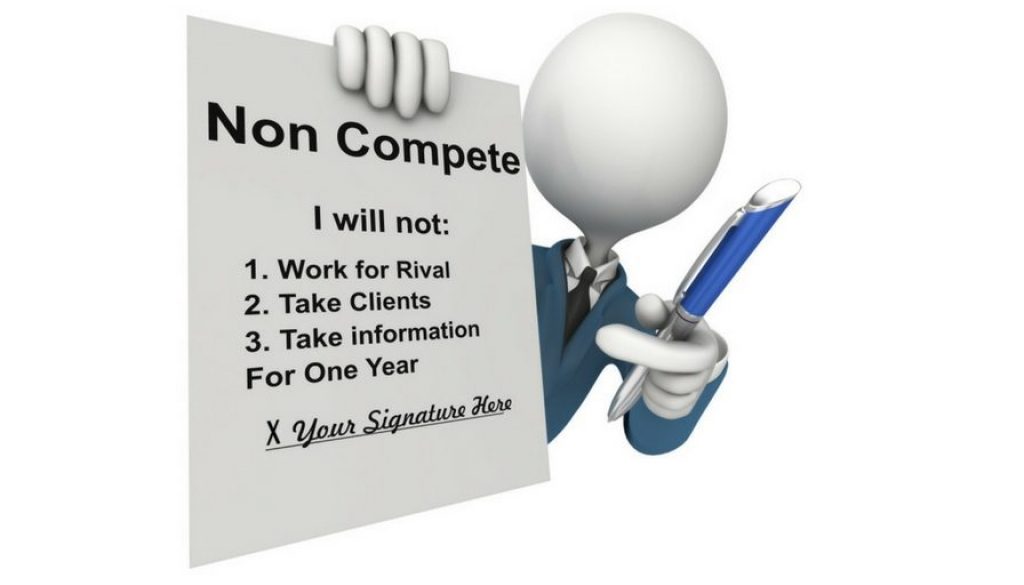What is a Non Compete Agreement?
Non Compete or Non Competition Agreements are contracts that contain a restrictive covenant whereby an employee promises to refrain from competing against their employer for some period of time. Such agreements can be beneficial to both the employer and employee. Employers are likely to invest more in the training and development of the employee without fear of the employee leaving to work for a competitor. Employees are also likely to be paid more and receive greater professional skill development.
However, employees should be very cautious before signing such agreements. Employers often draft the language of the restriction broadly for their own protection. Employers should also tread carefully as Courts will not enforce non compete covenants if they are unconscionable, offend public policy, or otherwise operate as a restraint of trade for the employee.
A Non Compete Agreement is generally enforceable if it is:
-
Necessary to Protect a Legitimate Business Interest
Will the employee have access to the employer’s trade secrets, customer lists, or some other form of proprietary information? Would that information be damaging to the employer if used by a rival? The employee must have the ability to harm the business of the employer with the information once the employment ends for it to be necessary.
- Consider the uniqueness of the employee’s services. The more unique the services, the more likely it is that the covenant will be enforced. If the services are not unique, there is less need for a non compete covenant.
- Are janitors, gardeners, or day laborers unique in their services? No. They are unlikely to possess company trade secrets through the normal scope of their employment.
- Are executives, engineers, or software developers unique? Yes. They are likely to have access to company trade secrets and other proprietary information that would be damaging if used by a rival.
- Consider the uniqueness of the employee’s services. The more unique the services, the more likely it is that the covenant will be enforced. If the services are not unique, there is less need for a non compete covenant.
-
Reasonable in Scope
The reasonableness inquiry is where the Court will evaluate the actual terms of the restrictions. They must be no greater than is justifiable to protect the employer. They also cannot impose an undue burden on the employee’s livelihood.
- Reasonable in time: Does the agreement seek to prohibit the employee from competing forever? If so, the restriction is likely unreasonable absent unique circumstances, and thus unenforceable. So long as the length of time is reasonably related to the length of time that the secret remains valuable, it will likely be enforceable. In most cases, a restriction period of 6 months to 2 years will be upheld as reasonable.
- Reasonable in distance: Does the employer seek to prohibit the employee from competing within 10, 20, or 30 miles of the employer’s business? Generally, the larger the geographic restriction, the less likely it is to be enforceable.
- Reasonable in extent of restriction: Does the agreement prohibit the employee from working in his or her trade completely? If so, it is likely an unenforceable restraint of trade. Nonetheless, a temporary restriction from directly competing in a specialized area of the employer’s industry is more likely to be upheld.
-
Supported by Consideration.
The employee must receive something of value at the time of execution. This is typically money, but may also be equity in the company. The employer should not seek to intimidate or attempt to put undue pressure on the employee to sign. This may lead to the subsequent invalidation of the restrictions, and nullification of the agreement. It is important to note that if the agreement is signed after the employee has been hired, simply continuing the employment does not constitute consideration and another item of value must be provided.
Before signing a non compete agreement, you should have it reviewed by a knowledgeable contract attorney. For more information, or to have your non compete agreement drafted or reviewed, please contact our office for a free consultation.
Disclaimer: This blog is made available by Kloss, Stenger & LoTempio for educational purposes only. It is not intended to provide legal advice nor form any attorney client relationship between reader and Kloss, Stenger & LoTempio. You should always seek professional advice from a licensed�attorney for any legal questions you may have.



